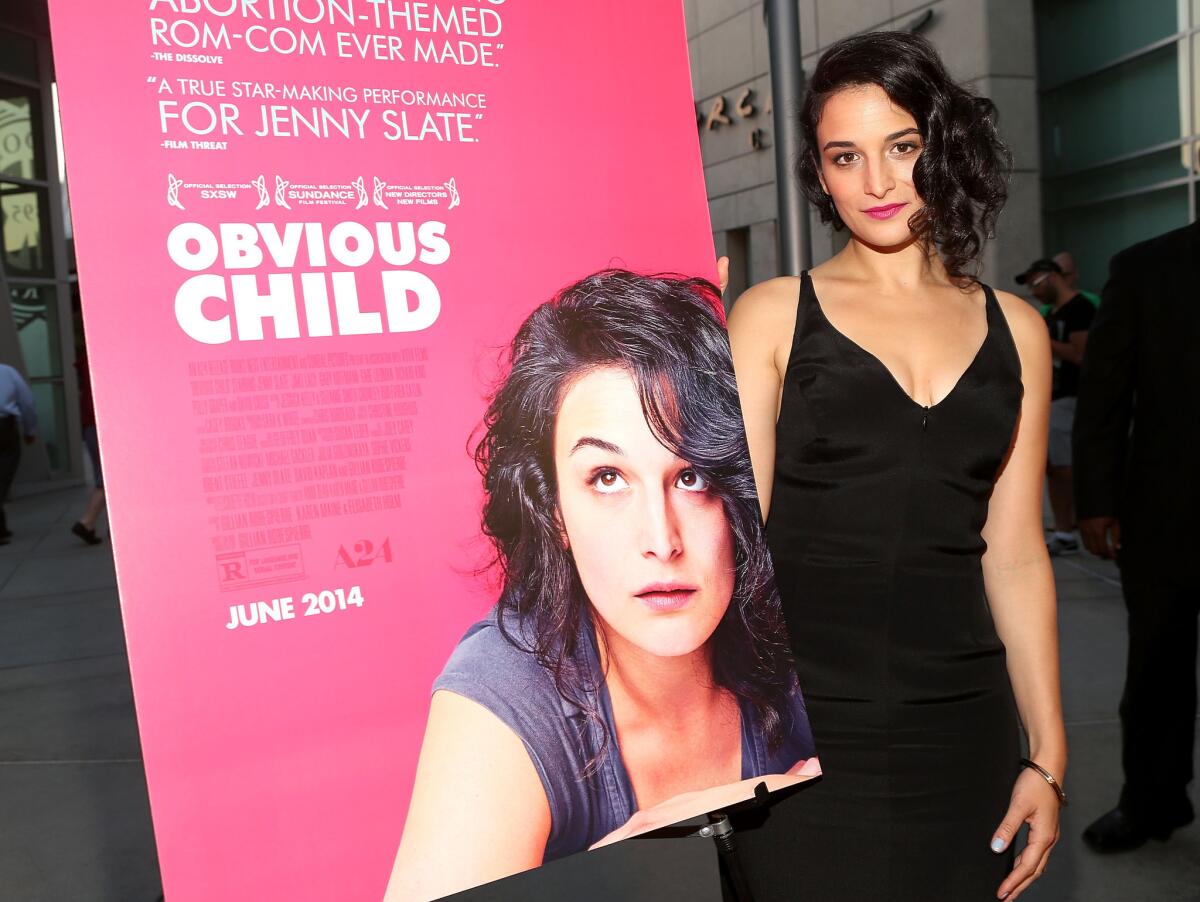Is ‘Obvious Child’ really a comedy about abortion? Sort of.

- Share via
There’s nothing funny about abortion. Is there?
I don’t quite understand how she did it, but Gillian Robespierre, a fledgling 35-year-old writer-director, has managed, with “Obvious Child,” to take one of our most politically charged social issues and give it the romantic comedy treatment.
“Obvious Child” is is not really a comedy about abortion, as some have described it. It’s more a comedy about an unintended pregnancy, a situation in which millions of American women find themselves each year.
About half of the 6.6 million pregnancies in the United State each year – 3.4 million – are unintended, according to the Guttmacher Institute. Slightly more than a million women will opt for an abortion each year. About half of American women will experience an unintended pregnancy by age 45.
Women who think the state has no place in their uterus should fall over themselves with gratitude that Robespierre and her enchanting star, Jenny Slate, 32, have chosen to normalize a perfectly legal medical procedure. Robespierre told me Monday that she had no trouble lining up investors for the film, which grew out of a short feature that she wrote with Karen Maine and Elisabeth Holm.
“We wanted to tell a story we thought was unspoken in mainstream cinema,” Robespierre said by phone from the Four Seasons hotel in Beverly Hills, where she had reporters lined up for interviews like circling planes. “Millions of women are faced with unplanned pregnancies and we all know in our heads and hearts they should have access to non-judgmental information about their options, and they should have safe procedures and the clinics should be warm and nice. We wanted to show a woman having a regret-free abortion, where there’s not a lot of shame or judgment.”
Slate’s tender performance is, naturally, the key to the film’s success. She plays a stand-up comedian in crisis (is there any other kind?), and is a funny girl for our times. Fart jokes, vaginal discharge jokes, pubic hair jokes – all find their way into her act. (“I hate it when people say farts are for boys,” said Robespierre. “Farts are funny and have no gender.”)
The movie is free of preachiness or the pat outcomes we have come to expect in celluloid portrayals of unplanned pregnancies, as exemplified by “Knocked Up,” “Waitress” and “Juno.” That is not to say it is free of emotional anguish. A woman who is not ready to be a mother does not generally react with joy to an unintended pregnancy. But emotional anguish precedes many important life events, such as weddings, childbirth, divorce.
The clinic scene is one of the movie’s most lovely and poignant. The way Robespierre chose to film it speaks to the philosophical debate that continues to rage around abortion. When it comes to deciding whether to proceed with a pregnancy, this scene leaves no question about who is the most important person in the room.
It’s obvious, child.
More to Read
Sign up for Essential California
The most important California stories and recommendations in your inbox every morning.
You may occasionally receive promotional content from the Los Angeles Times.











